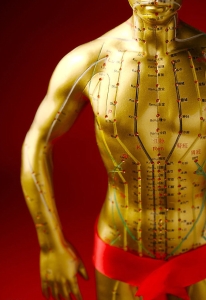 Chinese medicine, also called Traditional Chinese medicine (中医 ), refers to the unique and original medical system traditionally practiced in China and in countries influenced by China: Japan (日本 ), Korea (韩国 ), and Vietnam (越南 ).
Chinese medicine, also called Traditional Chinese medicine (中医 ), refers to the unique and original medical system traditionally practiced in China and in countries influenced by China: Japan (日本 ), Korea (韩国 ), and Vietnam (越南 ).
The various therapies of Chinese medicine include acupuncture (针灶 ) and moxibustion, herbal medicine (草药 ), dietetics, massage (Tuina, 提护招動 ), and Qigong (气功 ). These diverse therapeutic methods are unified by a unique underlying theory deeply rooted in Chinese thought.
This theory emphasizes the correspondences between humans and nature through the concepts of yin-yang (阴阳 ), the five elements (五行 ), the Heaven-Human-Earth relationship (天人地 ), and of the vital energies (气 ) that animate the universe. Just like in nature, a healthy person benefits from the balance between these different aspects of reality. Excesses or deficiencies disturb this balance and manifest as illness. The origins of these disorders can be many: a disordered lifestyle, external factors (such as catching a chill), or internal factors (emotions).
In Chinese medicine, the goal is not simply to fight against a particular symptom, but to restore overall balance. Disease prevention therefore holds an important place in Chinese medicine. In other words, it is not only illness that is the focus of this knowledge, but above all health. This involves a certain humility in the face of reality. Humankind must conform to the rhythm of the universe (道 ) and cannot allow themselves everything. Sadly, this is a notion that goes against a very powerful trend of thought in our era, which promotes a kind of freedom defined by the absence of constraints, rather than by responsible choice.
The different therapies can be combined. The choice is often made by the doctor and the patient based on the illness, available means, and individual preferences. It is worth noting, however, that in the West, “Chinese medicine” immediately brings to mind “acupuncture,” whereas for the Chinese world, it is more often “herbal medicine.” In fact, needles are quite frightening to the Chinese, while they have easier access to herbs than we do.
The term “herbal medicine” means “treatment of illnesses with plants.” It is not entirely accurate for Chinese medicine, whose pharmacopoeia also includes minerals and animal parts.
